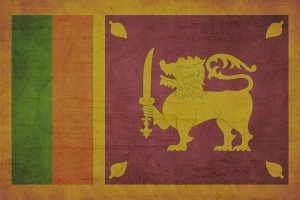Religious nationalism played the central role in the recently-held Sri Lankan presidential election, in which Nandasena Gotabaya Rajapaksa came away victorious, winning 52.25 percent of the vote. The results reveal that the success of the candidates in each electorate area was determined by what religious community made up the majority of the constituency.
The voters in Buddhist-majority electorate areas overwhelmingly voted for Gotabaya, who played the “Sinhalese Buddhist nationalism” card throughout his election campaign. In contrast, Sajith Premadasa, Gotabaya’s major rival, and other candidates failed to win in these Buddhist majority constituencies.
Conversely, Gotabaya lost in electorate areas where the majority of the voters are Muslims and Hindus, with the Sinhalese Buddhists in the minority. Premadasa, on the other hand, won easily in most of the Muslim- and Hindu-majority constituencies. The results, therefore, are a clear reflection of how religious nationalism had divided the entire nation.
Gotabaya’s promise of delivering a Sinhalese Buddhist oriented Sri Lanka made him the preferred candidate for Sinhalese Buddhist voters. Gotabaya often appeared alongside Buddhist monks during his election campaign events, as he knew well that it was necessary to portray the full support from these monks in order to display his commitment to Sinhalese Buddhist nationalism.
On the other hand, the country’s Tamil/Hindu and Muslim minorities feared that such a Sinhalese Buddhist oriented society could mean the subordination of the rights of minorities and, hence, they outright rejected Gotabaya.
Interestingly, Sri Lanka’s Christians mostly voted for Gotabaya. While concern about the security of their religious community influenced their choice of presidential candidate, this concern is linked to Christians’ fear of the Muslim community as a whole.
Sri Lankan Christians have been living under a sense of insecurity and doubt following the Easter Sunday attacks on Christian churches. Divisive political leaders fed Christians the narrative that the Muslim community at large is to be blamed for the attacks. This idea is a total contrast to the reality, as only a micro portion of the Muslim community that bears radicalized ideas, and not the whole community, was responsible for the Easter Sunday attacks.
Gotabaya’s election campaign also targeted at exploiting public sentiment about security concerns. In fact, his campaign largely focused on the necessity for a muscular national security policy. During the campaign, Gotabaya repeatedly reminded voters of his role against the Tamil Tigers during the decades-long civil war, which ended in 2009. He promised that he will end the “Islamic militancy” in the same way he had crushed the Tamil insurgency.
The reminder about the civil war was one of the prime factors that earned Gotabaya full support from Buddhist and Christian voters.
Many Buddhist voters viewed the victory against the Tamils as a victory of the Sinhalese Buddhists over “predominantly Hindu” Tamils. This clearly explains the Buddhist community’s overwhelming support for Gotabaya. As for Christian voters’ support for Gotabaya, these voters perhaps believed that Gotabaya is the right person to tackle the Sri Lankan Muslims the same way he ended the Tamil insurgency.
Since both these communities appear to have bought Gotabaya’s assurance on improving the country’s worsening security situation, many analysts fear that Gotabaya will use this sentiment to indiscriminately crack down on even innocent Tamils/Hindus and Muslims in the name of counterterrorism.
It is worth noting here that immediately after the declaration of the election results, Gotabaya declared in a speech that he is the president of all Sri Lankan citizens, the ones who voted for him and the ones who voted against him. This declaration alone, however, is not enough to reduce the fear among Hindus and Muslims.
What is required is an immediate halt to the bolstering of Sinhalese Buddhist nationalism, something that Gotabaya himself promoted during the election campaign. Pointed attempts to build up Sinhalese Buddhist nationalism, particularly after the Easter Sunday attacks, had prompted tensions between Buddhists and Muslims as well as between Christians and Muslims.
Hence, Gotabaya’s promise cannot be taken seriously until he visibly starts working to ease the tensions among religious communities — something which many fear is unlikely to happen. After all, Gotabaya’s election victory was largely based on his bolstering of Sinhalese Buddhist nationalism and spreading fear of insecurity in a way that tacitly framed the Muslim community as a whole as the culprit.
Bahauddin Foizee is a Dhaka-based geopolitical analyst and international affairs columnist. His articles have been published in The Diplomat, The National Interest, Oped Column Syndication, Indian Defence Review, Journal of International Affairs (SIPA), and Institute of Peace and Conflict Studies (IPCS), among others.

































